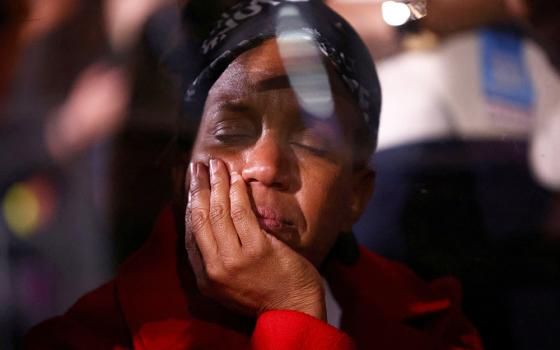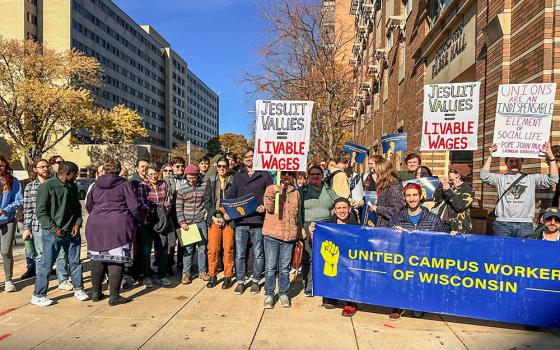The U.S. Supreme Court’s unanimous ruling in the case Hosanna-Tabor v. EEOC is a resounding defeat for those who seek to deny religious groups their free exercise rights guaranteed by the First Amendment. The mere fact that the decision was unanimous should give pause, great pause, to those who argued here – and who argue in other contexts - that religious groups should be treated like any other social group. In a word, the court’s decision, written by Chief Justice John Roberts, proclaims to those who have forgotten it that the First Amendment means what it says.
The heart of decision is whether or not, as the Court previously suggested in Employment Div., Dept. of Human Resources of Ore. V. Smith (1990), a decision written by Justice Antonin Scalia, laws of general and neutral applicability should extend to religious organizations. Here, the Court distinguishes between the issues raised in that prior case and the issues before the court in Hosanna-Tabor. But, they chip away at the logic of the prior case in unambiguous words. “The interest of society in the enforcement of employment discrimination statutes is undoubtedly important,” the decision states. “But so too is the interest of religious groups in choosing who will preach their beliefs, teach their faith, and carry out their mission. When a minister who has been fired sues her church alleging that her termination was discriminatory, the First Amendment has struck the balance for us. The church must be free to choose those who will guide it on its way.”
The Chief Justice spanks the Department of Justice, which had submitted a brief that compared the rights of religious organizations to those of labor unions and other social groups. “The right to freedom of association is a right enjoyed by religious and secular groups alike,” writes the Chief Justice. “It follows under the EEOC's and Perich's view that the First Amendment analysis should be the same, whether the association in question is the Lutheran Church, a labor union, or a social club. See Perich Brief 31; Tr. of Oral Arg. 28. That result is hard to square with the text of the First Amendment itself, which gives special solicitude to the rights of religious organizations. We cannot accept the remarkable view that the Religion Clauses have nothing to say about a religious organization's freedom to select its own ministers.”
I hope that the White House will pay special attention to those words when it considers the issue of conscience exemptions regarding the HHS mandates about which I have written extensively. The White House, of course, could not instruct the DOJ on what that brief should or should not argue, and the President has publicly stated that he supports the ministerial exception at issue in Hosanna-Tabor even while the DOJ essentially denied such an exception existed. But, many White House advisors, and congressional advocates, for the view that religious institutions should be forced to pay for insurance coverage of procedures they find morally objectionable sat in the same classes with Professor Tribe that the DOJ lawyers attended. Those lawyers devised a brief that the Chief Justice and all of his colleagues, including the two justices appointed by President Obama, here label “remarkable.” Does the administration really want to ride this Barry Lynn-inspired ride again?
There is a section of the concurring opinion of Justice Alito, joined by Justice Kagan, that also warrants mention. “Throughout our Nation's history, religious bodies have been the preeminent example of private associations that have ‘act[ed] as critical buffers between the individual and the power of the State.’ Roberts v. United States Jaycees, 468 U.S. 609, 619 (1984). In a case like the one now before us—where the goal of the civil law in question, the elimination of discrimination against persons with disabilities, is so worthy—it is easy to forget that the autonomy of religious groups, both here in the United States and abroad, has often served as a shield against oppressive civil laws. To safeguard this crucial autonomy, we have long recognized that the Religion Clauses protect a private sphere within which religious bodies are free to govern themselves in accordance with their own beliefs. The Constitution guarantees religious bodies ‘independence from secular control or manipulation—in short, power to decide for themselves, free from state interference, matters of church government as well as those of faith and doctrine.’ Kedroff v. Saint Nicholas Cathedral of Russian Orthodox Church in North America, 344 U.S. 94, 116 (1952).” This gets to something that has bothered me for a long time. Liberals like to celebrate diversity, but not when it comes to religious organizations. Here, Justices Alito and Kagan point to the “crucial autonomy” of religious organizations, free from government interference or manipulation, as a guarantee of freedom for all Americans, including Rev. Lynn.
My favorite section of the Chief Justice’s decision was his brief recounting of the history of the First Amendment’s religion clauses, especially this: “The King in particular accepted the ‘freedom of elections,’ a right ‘thought to be of the greatest necessity and importance to the English church.’ J. Holt, Magna Carta App. IV, p. 317, cl. 1 (1965).
That freedom in many cases may have been more theoretical than real. See, e.g., W. Warren, Henry II 312 (1973) (recounting the writ sent by Henry II to the electors of a bishopric in Winchester, stating: ‘I order you to hold a free election, but forbid you to elect anyone but Richard my clerk’). In any event, it did not survive the reign of Henry VIII, even in theory.” This would be funny, except of course that St. Thomas Becket paid a heavy price for Henry II’s interference with the rights of the Church and the English people suffered the great evils of schism and persecution from Henry VIII’s decision to make himself the head of the Church.
Bishop William Lori, chairman of the Ad Hoc Committee on Religious Liberty at the USCCB, applauded the decision. In a statement posted at the USCCB website, Bishop Lori said, “This decision makes resoundingly clear the historical and constitutional importance of keeping internal church affairs off limits to the government—because whoever chooses the minister chooses the message.It’s a great day for the First Amendment.” And, indeed it is. The Separation of Church and State, to which Rev. Lynn’s organization is so committed, is not the one way street Lynn wants it to be. The First Amendment is, in all of its parts, a guarantee of freedom for individual Americans but also for our society as a whole. Some people may think a given Church is wrong to preach this, or correct to fire that person, or blasphemous to entertain a given doctrine. But, all of that is none of the government’s business. That is what the Court ruled yesterday, and the lessons for other decisions pending before this and future administrations could not be more obvious.




